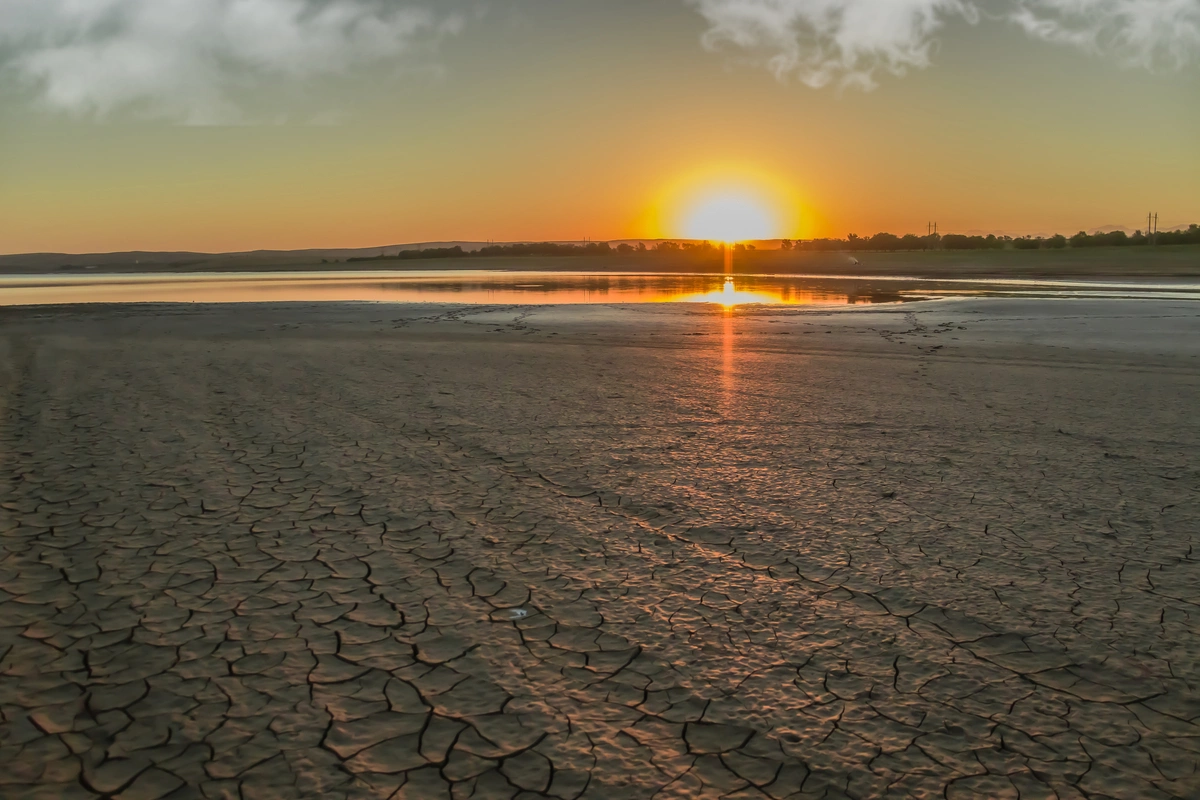
Kazakhstan is leading the charge in reviving the Aral Sea, which while once a vital ecosystem, now remains a stark reminder of environmental consequences.
Image: Vladimir Konstantinov/Shutterstock
Before the 1960s, the Aral Sea was the fourth-largest lake in the world. The 68,000 square km of water between today’s Kazakhstan and Uzbekistan were essential for the fishermen in the towns surrounding the Aral Sea, as well as the ecosystem of the region. Today, looking at the

Although many refer to the 1960s as the time when the water levels started to drop, it all began in the early 1920s when Joseph Stalin decided to turn Central Asia into a giant cotton plantation production machine. Despite the region not being suited for growing cotton, the Soviet Union found a solution to channel water from the rivers Amu Darya and Syr Darya—which naturally flow into the Aral Sea—to the cotton plantations in the desert. Forty years later, with Khrushchev in power and more irrigation canals added, the sea started to disappear, leading to its eventual split into two in 1987—the North Aral Sea in Kazakhstan and the South Aral Sea between Kazakhstan and Uzbekistan. The satellite images comparing the state of the Aral Sea in 1989 and today reveal the devastating reality of this man-made ecological disaster in Central Asia.
The effects of the water shortage were life-changing for the people. Besides having no access to drinking water, many lost their livelihood and had to flee, as more evaporation and heat caused the death of all fish. Those who stayed had to face not only the economic consequences but also consequences related to health, such as the high infant mortality rate and cancer, due to the salt from the former sea winding up in the air together with dust storms circulating in the coastal regions. Thus, resulting in respiratory diseases among adults and children.
The Aral Sea’s disappearance has been a prevalent topic of discussion in the world as climate change concerns become of major importance. In 2005, Kazakhstan, together with the World Bank, revealed the Kokaral Dam, an $86 million project aimed at raising water in the North Aral Sea. The results were even more successful than it was anticipated. The North Aral Sea filled faster than expected, which brought back the jobs in the region, reviving the fishing industry. Soon, the government started reintroducing fish, and according to BBC, in 2016, 7,106 tons of returned fish were recorded by the Aralsk Fish Inspection Unit. However, that’s only the beginning of a long process of restoring the Aral Sea.
Things are looking grimmer for the Southern Aral Sea. Due to its geographical location, it can only be revived by cooperation between Kazakhstan and Uzbekistan. Despite the World Bank’s project proposals, Uzbekistan is not ready to put the rehabilitation of the South Aral Sea above the production of cotton. As the country remains the fifth biggest cotton exporter in the world, it would put farmers out of work and result in economic downfall.
Besides Kazakhstan and Uzbekistan, the revival of the Aral Sea needs regional coordination and cooperation,

The Aral Sea remains a stark reminder of the consequences of human actions that affect our planet and how negligence and political ambitions affect the lives of ordinary people and the global ecosystem.
Share on social media